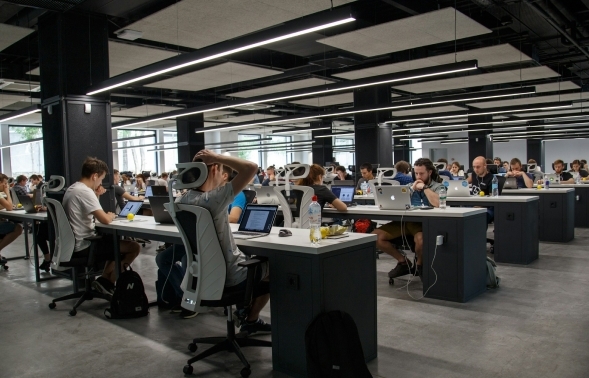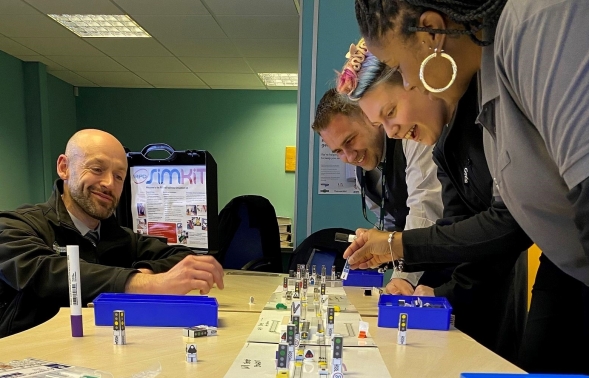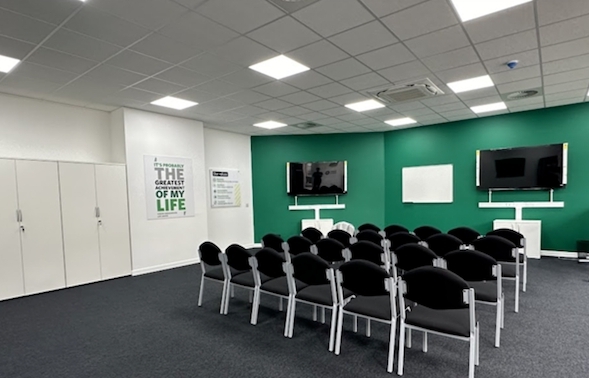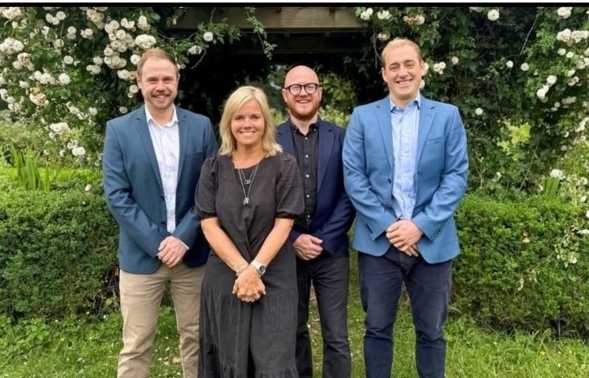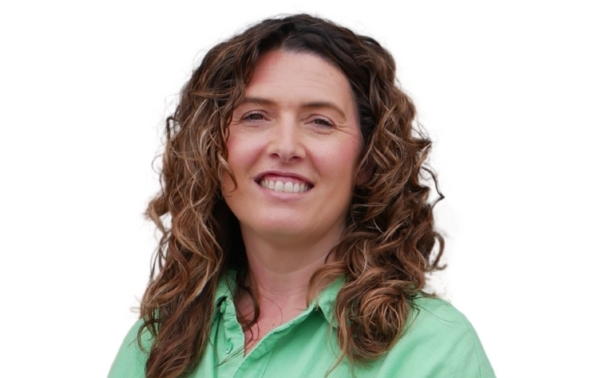Random Acts of Kindness
Charles Darwin discovered that kindness is an inherent aspect of human nature, believing that we are a profoundly social and caring species. He argued that sympathy and caring for others is instinctual (DiSalvo, Scientific American, 2017) - psychologytoday.com
Acts of kindness are where an individual does or says something that promotes support or encouragement, without any expectations of reciprocation.
One very powerful aspect coming out of the Covid 19 pandemic is the number of incredible acts of kindness that are occurring around the World. These acts of kindness are embedding themselves into our daily lives, reinforcing that no matter how difficult the situation, empathy and humanity will prevail.
Captain Tom Moore and Sergeant Zinaida Korneva
Not a day goes by without seeing an array of extraordinary acts of kindness.
Yorkshireman Captain Tom Moore, now aged 100, recently captured the heart of the nation and the World by walking 100 laps around his garden, and raising almost £33m for the NHS! This led to an RAF fly past in his honor, as well as his inspirational effort being mirrored up and down the country. Sergeant Zinaida Korneva, aged 97 from Russia, felt so moved that she knitted Captain Tom a pair of socks and vowed to raise money for Russian Doctors through telling wartime stories.
Kindness is not only limited to the outpouring of support seen for our essential key workers and the vulnerable, isolated members in our communities, but it can also be seen to play a vital role within our working communities too. Small acts like saying "thank you" or "you are appreciated" can make the biggest of impacts, not only upon our colleagues but also upon ourselves.
The Impact of Kindness
Too often we underestimate the power of a touch, a smile, a kind word, a listening ear, an honest compliment or the smallest act of caring, all of which have the potential to turn a life around. kindnessuk.com
Kindness impacts upon all of us and is incredibly infectious, having a ripple effect across businesses, families and communities. One kind, caring act is passed on, which in turn is passed on and so on - as the saying goes, 'paying it forward'!
Evidence shows that these acts are also beneficial to our mental health, as it not only impacts upon the individual but also the person carrying out the act by:
- Reducing stress
- Improving emotional well-being
- Benefiting physical health
- Bringing a sense of belonging and reducing isolation
- Getting rid of negative feelings
The Science
Science has shown that the hormones produced through these acts help us to stay calmer, healthier and happier. We are told that the hormone serotonin helps us to relax and feel good, and that endorphins help to reduce pain. The act of kindness should leave a person feeling more energised, more confident and may even help them to live longer! The added bonus is that if other people see you helping someone else, they will also feel the same feel-good hormones and are more likely to pay it forward. randomactsofkindness.org/the-science-of-kindness
Kindness has the power to change the World, one small act after another. Let's keep it going!
Being Kind to Yourself
It is important to be kind to ourselves. Setting goals gives us direction and motivation but we should make sure that they are realistic. If we falter or feel the need to change those goals, then we should change them without putting pressure on ourselves, especially with Covid 19 and all of the uncertainties, changes, pressures and worries that it has brought. It is going to be a different environment for all of us for quite a while and one way to help us all get through this, is to be kind and gentle with ourselves, our family, our community and our colleagues.
It is good to stretch ourselves but also just as important to relax, breath, unplug and enjoy the simple things in life, like exploring a local beauty spot in the sunshine and picking buttercups, or starting to read a book you have been meaning to read for ages. How about starting that hobby that you meant to 'get round to' (for me, it is watercolour painting), or simply switching off the alarm for a couple of days of the week and letting your body wake up when it is ready? Or snuggling down to watch a rented film for a date, or setting up a 'friend's night' with everyone watching the same film and chatting about it on Zoom or WhatsApp afterwards! Maybe start running, or scheduling important facetime with loved ones and friends? The list of possibilities is endless and personal to you, but make sure you facture in some YOU time in everything you do - be kind to you!
Kindness in the Workplace
Everyone has a role to play in supporting each other through acts of kindness. Think about an act that has made you feel supported, what kindness has brightened up your day, what is missing and how you can reach out to others to fill the gap with support. Is someone overstretched, not coping and too quiet or off the radar? Is there anyone with not enough to do, worried perhaps that their role may no longer be needed? Thinking about others and reaching out will make a huge impact upon how someone is feeling.
It is particularly important that with so many people working from home and possibly feeling isolated from their colleagues that you keep in regular contact with them - more so than normal. Some may be having to juggle children and partners who are also working from home during the lockdown, which can be stressful, but knowing that you are keeping an eye out for them with encouraging words of support or reminding them that priorities constantly have to change due to the current climate, may be just the touch of kindness that they need! And this will have a positive impact upon how they cope.
Here are a few ideas of what you can do:
- Facetime/zoom/Skype: Arrange a weekly cup of tea/coffee chat with a colleague or team for a catch up to see how everyone is. Maybe use WhatsApp video (up to 4 people)?
- Lend an ear: Call and talk with a colleague who you think may be struggling. How can you help, does their workload need sharing? Keep in regular contact, ask lots of questions - listen to the answers!
- Praise: Give recognition to colleagues who are achieving their goals or inspiring others to do so, no matter how big or small. Even a simple "I can see that …" makes a difference.
- Video Lunch - Arrange a video lunch with your colleagues. Grab some food and keep conversation light and friendly.
- Breaks: Reach out to colleagues to make sure that they are taking a break from their screens. They could step away and read, take a short walk or brief tea break in the garden - anything as long as it is break away from the computer screen now and again.
- New skills: Offer training opportunities. Use any quiet time as a great opportunity to share skills. Zoom allows you to video call whilst also linking into systems for shared viewing.
- External training: Is there a course a colleague is interested in? Now maybe the ideal time that they do it? Can the company financially support or partially fund it?
- Team Quiz: Hold a fortnightly facetime Quiz night - how about kindness as the first topic?!
- Buddy System: Senior personnel buddy a Junior member of staff they do not usually work with, in a friendly mentoring capacity, offering guidance, advice and support






